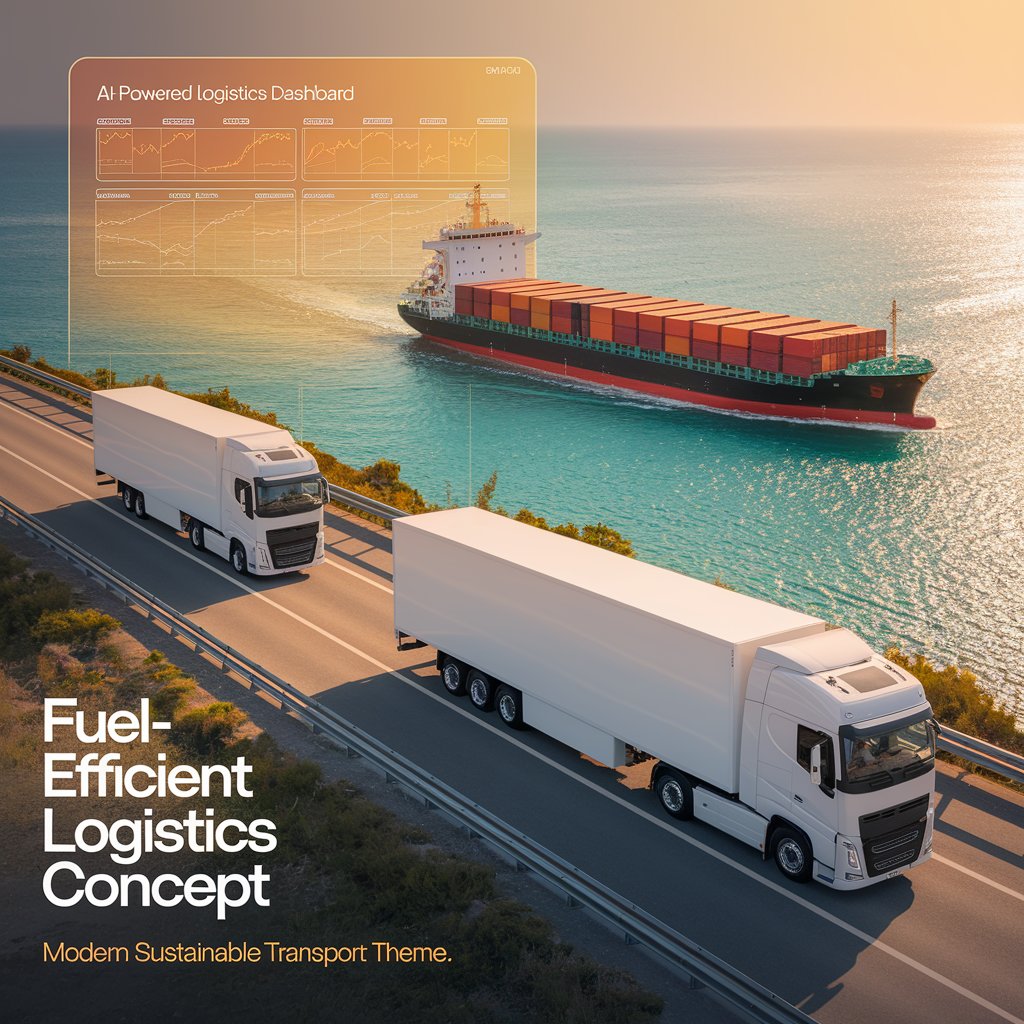Fuel-Efficient Logistics: Reducing Costs and Emissions

Introduction
Fuel-efficient logistics is about balancing profitability with environmental responsibility. By combining route optimization, smart technology, and modern fleet management, businesses can reduce fuel consumption, lower emissions, and increase supply chain resilience.
What Is Fuel-Efficient Logistics?
Fuel-efficient logistics refers to strategies, tools, and practices designed to minimize fuel consumption across supply chains without sacrificing service quality. It combines operational planning with digital innovation to ensure that every shipment uses the least amount of fuel possible.
Key areas include:
- Smart route and load planning
- Adoption of eco-friendly vehicles
- Use of AI and automation in fleet operations
- Monitoring fuel consumption with IoT

Benefits of Fuel-Efficient Logistics
Benefit | Impact |
Cost Reduction | Lower fuel expenses across shipments |
Sustainability | Reduced greenhouse gas emissions |
Efficiency | Faster, optimized transport routes |
Compliance | Meet international emission standards |
Competitive Edge | Stronger position with eco-conscious clients |
Technologies Enabling Fuel Efficiency
- AI-Powered Route Optimization: Identifying the shortest, fastest, and least fuel-intensive paths.
- IoT Telematics: Real-time tracking of fuel use and driver performance.
- Hybrid and Electric Fleets: Lower reliance on traditional diesel engines.
- Predictive Analytics: Forecasting demand to avoid underutilized trips.
- Automation Tools: Reducing idle times and manual errors in planning.

Industry Applications
- Freight forwarders integrating AI tools to optimize multi-modal shipments.
- Retail logistics adopting electric delivery fleets for last-mile efficiency.
- Ocean carriers using slow steaming strategies to reduce fuel burn.
- Air cargo operators implementing lightweight materials to cut fuel use.
These examples highlight how fuel-efficient logistics is applied across air, ocean, and ground transportation.
Challenges of Fuel-Efficient Logistics
- Upfront investment costs for new fleet technologies
- Regional fuel availability for alternatives like LNG or hydrogen
- Driver training to maximize fuel efficiency in practice
- Infrastructure gaps in electric charging and green fueling stations
Despite these challenges, companies adopting fuel-efficient strategies gain measurable cost savings and sustainability benefits.

Conclusion
Fuel-efficient logistics is the key to modernizing supply chains, lowering operational costs, and achieving sustainability goals. By adopting AI, IoT, and alternative fuel strategies, businesses can reduce fuel use while boosting efficiency and competitiveness. The future of logistics is clear: fuel efficiency is the new standard for profitability and sustainability.
